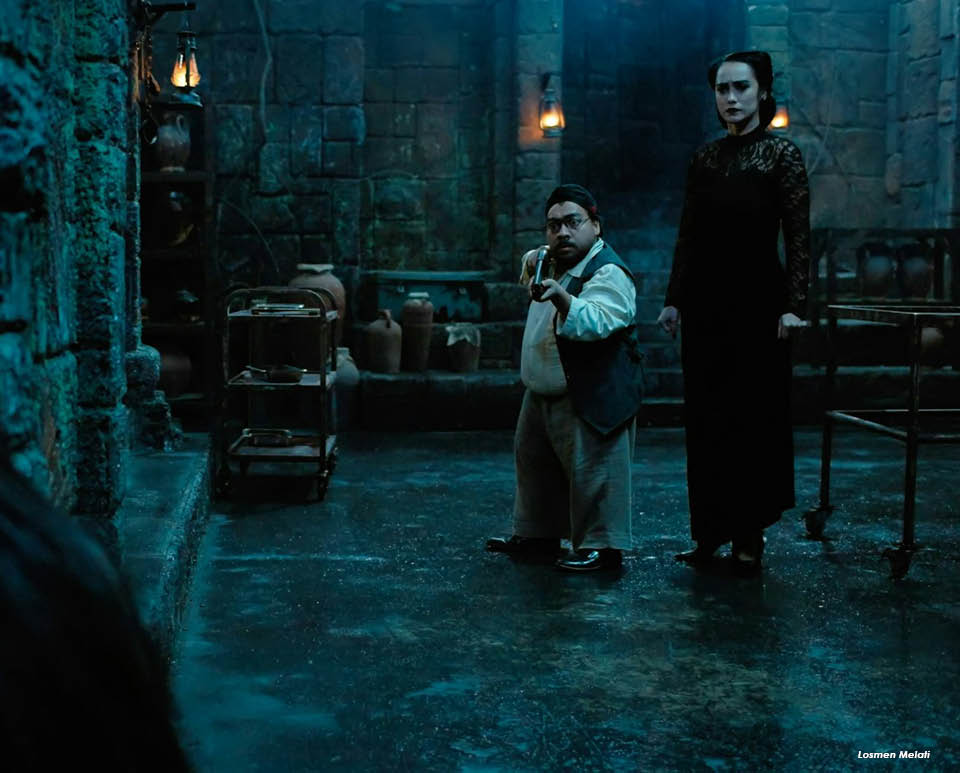
Remakes and film franchises should be part of the repertoire of smaller and independent producers, not the exclusive domain of Hollywood or Asian majors, executives at Focus Asia, an East-West industry gathering on the side of this year’s Udine film festival were told.
Thomas Bruxelle of France’s Bright Lights Films, which produced "Sans répit" (the adaptation of 2014 Korean crime thriller "A Hard Day"), said remakes could represent “a bridge between different cultures” and should be viewed through three lenses – cultural, artistic and economic.
The remake industry was also underpinned by distributors’ preferences for safety and known quantities, he said, pointing to the Cantonese-language "Infernal Affairs" film trilogy that became the Oscar-winning "The Departed".
Talking about the changes from "A Hard Day to Sans Repit" [aka "Restless"], Bruxelle said police corruption and multi-generational households were less prevalent in France and were played down. The main characters were also made more relatable. The film streamed on Netflix in 2022 and is now moving to free TV.
Bruxelle warned that, unless handled carefully, remakes can drown creativity, or may struggle against over-familiarity with the original. His example was Spike Lee’s 2013 remake of Korea’s "Oldboy", which failed because it did not live up to the 2003 Park Chan-wook original. “It replaced complexity with violence and reinforced harmful stereotypes of the Asian revenge genre,” he said.
Taiwan’s Screenworks Asia GM, Chen Shao-yi, argued that the film-to-film remake route was already well-trodden.
She suggested that Asian creators look at other forms of IP – both as source material and sources of revenue – and encouraged lateral thinking and flexibility.
Chen highlighted Taiwan’s "The Making of an Ordinary Woman", a two-season series based on Goose Chiang’s novel. “The book was not coherent as a series narrative, so we considered season two as an extension of season one, rather...
Remakes and film franchises should be part of the repertoire of smaller and independent producers, not the exclusive domain of Hollywood or Asian majors, executives at Focus Asia, an East-West industry gathering on the side of this year’s Udine film festival were told.
Thomas Bruxelle of France’s Bright Lights Films, which produced "Sans répit" (the adaptation of 2014 Korean crime thriller "A Hard Day"), said remakes could represent “a bridge between different cultures” and should be viewed through three lenses – cultural, artistic and economic.
The remake industry was also underpinned by distributors’ preferences for safety and known quantities, he said, pointing to the Cantonese-language "Infernal Affairs" film trilogy that became the Oscar-winning "The Departed".
Talking about the changes from "A Hard Day to Sans Repit" [aka "Restless"], Bruxelle said police corruption and multi-generational households were less prevalent in France and were played down. The main characters were also made more relatable. The film streamed on Netflix in 2022 and is now moving to free TV.
Bruxelle warned that, unless handled carefully, remakes can drown creativity, or may struggle against over-familiarity with the original. His example was Spike Lee’s 2013 remake of Korea’s "Oldboy", which failed because it did not live up to the 2003 Park Chan-wook original. “It replaced complexity with violence and reinforced harmful stereotypes of the Asian revenge genre,” he said.
Taiwan’s Screenworks Asia GM, Chen Shao-yi, argued that the film-to-film remake route was already well-trodden.
She suggested that Asian creators look at other forms of IP – both as source material and sources of revenue – and encouraged lateral thinking and flexibility.
Chen highlighted Taiwan’s "The Making of an Ordinary Woman", a two-season series based on Goose Chiang’s novel. “The book was not coherent as a series narrative, so we considered season two as an extension of season one, rather than a book-to-screen adaptation,” Chen said. “We paid for extended rights, allowing us to control everything from face masks to herbal medicine. We worked with local government to preserve sites and filming locations and there was a live concert series that also evolved from the music used.”
Catchplay also backed 10-episode Indonesia horror fantasy "Losmen Melati", produced with Infinite Studios. The series was re-edited into a theatrical movie, with a sequel in post-production. The 93-minute original film streams on Netflix.
Bruxelle and Chen both said Netflix has used remakes as a “strategic tool” and an example of “glocalisation”.
– By Patrick Frater































